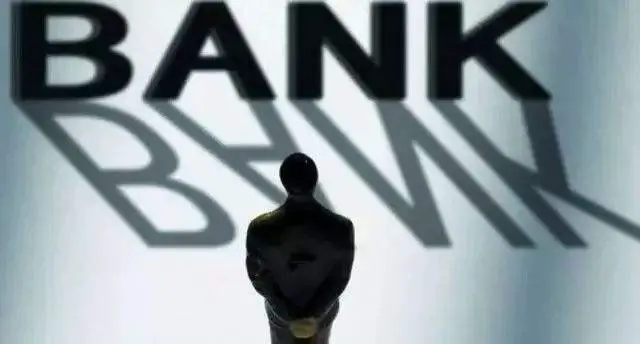A major summit between the United States and the Gulf nations wrapped up Thursday with pledges of increased security cooperation, but fell short of producing a formal defense treaty sought by Gulf nations amid their concerns over a rising Iran and a possible nuclear arms race in the Middle East.
The meetings, held at the Camp David presidential retreat, were the first such talks in some time between the United States and the Gulf Cooperation Council (GCC), which includes Saudi Arabia, Bahrain, Oman, Kuwait, the United Arab Emirates and Qatar. They were also the first such talks after the United States reached a framework for an agreement on limiting Iran's nuclear program.
Critics blast the U.S. deal with Iran as too soft on Iran, and Gulf states fear that the Islamic Republic could obtain nuclear weapons despite a deal intended to prevent this, although Tehran says its nuclear program is peaceful.
INDEPENDENT DEFENSE VIEW
The GCC countries are worried that the administration of U.S. President Barack Obama is not as focused on the Middle East as much as leaders would like, leading some Gulf nations to take a more independent view of their own defense.
Indeed, Saudi Arabia has vowed to match what it believes to be Iran's nuclear capabilities. A recent New York Times article quoted former Saudi intelligence chief Prince Turki bin Faisal as saying, "Whatever the Iranians have, we will have, too."
Experts said the Saudis will take a more independent stance on their own defense.
"The Gulf states will take a more independent attitude to their defense, for example, acquiring nuclear technology," Simon Henderson, director of the Gulf and Energy Policy Program at the Washington Institute, told Xinhua.
Other experts said Obama is perceived by Middle Eastern leaders as withdrawing from the region as much as possible. James Phillips, a Middle East expert at the Heritage Foundation, said this has compounded the nervousness of Arab allies already worried about Iran.
"Saudi Arabia and other GCC states have upgraded relations with France as partial compensation, and are likely to seek better relations with Russia and China as an offset to Iran," he said.
Indeed, The New York Times reported Wednesday that France is plugging the gap between the United States and the Gulf states, noting that recently French President Francois Hollande oversaw a 7-billion-U.S.-dollar deal to sell fighter jets to Qatar.
While the Gulf states did not get the military pact they were looking for, Obama used strong language Thursday to give Gulf leaders and officials assurances that the United States would be there when needed.
"The United States will stand by our GCC partners against external attacks and will deepen and extend the cooperation that we have," he said.
Reflecting those sentiments, leaders put out a joint statement saying that the United States would, if an outside country became aggressive, work with Gulf states to "determine urgently what action may be appropriate," which would include the "potential use of military force, for the defense of our GCC partners."
Moreover, the White House said Thursday that it was open to discussing the possibility of granting Gulf nations "Major Non-NATO Ally" status, although that was not the specific focus of Thursday's talks, Deputy National Security Adviser Ben Rhodes said at a press briefing.
Wayne White, former deputy director of the State Department's Middle East Intelligence Office, noted that Kuwait was granted such status by former U.S. President George W. Bush because it allowed itself to be the major jumping-off point for the 2003 U.S. invasion of Iraq.
The status signifies a closer relationship with the United States with a host of benefits such as cooperative research and development, reciprocal training, and possession of U.S. Department of Defense-owned "War Reserve Stocks" of missiles and ammunition.
Although not a formal mutual defense pact, this would have considerable value in emphasizing an enhanced American commitment to the welfare of the GCC states. While not a definitive "stop sign" of sorts, it does send a message much like "proceed with caution" to those posing potential threats, White said.
KEY GCC LEADERS' ABSENCE
Meanwhile, the talks were somewhat overshadowed by the absence of several key leaders amid rumors of a rift over the U.S. handling of its ties with Iran. Except for the leaders of Kuwait and Qatar, four other leaders of the six-member GCC countries declined the U.S. invitation to attend.
Saudi Arabia's King Salman, a crucial leader in the region, even decided to skip the summit at the eleventh hour and send Crown Prince Mohammed bin Nayef and Deputy Crown Prince Mohammed bin Salman to the summit instead.
Bahrain, an important regional ally that hosts the U.S. Navy's 5th Fleet, announced Sunday that the country's crown prince would head its delegation, not the king. Oman's sultan, who serves as a middleman between the United States and Iran, also did not attend, sending his deputy prime minister instead. The sultan recently returned home after receiving medical treatment.
While the White House denies this as a snub, U.S. experts said Gulf countries obviously are concerned about how the Obama administration is handling the nuclear negotiations with Iran. Enditem
 简体中文
简体中文

